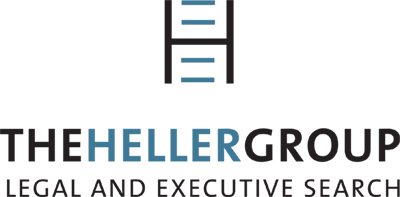I have read a lot about the topic of sponsorship lately and how important a sponsor can be in terms of career advancement. In fact, The Globe and Mail published an article that included the question of whether companies provide sponsors, along with role models, as one of the top five questions to help women climb higher in their careers. It is becoming clear that you need to think beyond just finding a mentor when building your career development team.
If sponsorship is pivotal to career advancement the question becomes how do you find a sponsor? A common mistake is confusing your mentor with your sponsor. While a mentor is a key part of your professional team who will provide advice, guidance and maybe even get you on a few files, they will not be the one petitioning the partnership when it comes to your annual review and advancement decisions. That is the role of a sponsor.
This article from the Globe and Mail provides a great breakdown on the difference between the role of a sponsor and that of a mentor. As this article points out, the sponsorship relationship has to be built on a foundation of exceptional work; no one is going to stick their neck out for you unless they know they are supporting a quality associate. Therefore, the first step in obtaining a sponsor is continuing to produce top quality work, meet deadlines and show commitment to the firm (the things you are probably already doing).
The second step is examining the senior lawyers you have strong working relationships with and identifying which of these lawyers have positions of influence at your firm (and whose endorsement will carry weight). As this article from the American Bar Association points out “[b]ecause the partnership election process is opaque and potentially highly political, having a sponsor is essential. Viable candidates need someone to vouch for their legal acumen while simultaneously articulating the business case for promotion…”
Finally, once you have established a sponsorship relationship with a senior lawyer, make sure sit down to discuss your goals and plans and ask for your sponsor’s feedback. Having a sponsor on your team isn’t going to magically pave the road to partnership; you still need to take steps to set short and long term goals and to evaluate your progress on a regular basis.
When I was researching for this blog, I came across this Associate Guide for Career Advancement into Partnership[1], published by LSUC in 2011 which focuses on guiding women associates who want to progress into a partnership role at a firm. This comprehensive guide contains advice on performance reviews, building your personal brand, developing a career plan, as well as a section on the importance of a sponsor. The guide cites research conducted by Catalyst which indicated that sponsorship provides a wide range of benefits for protégés including gaining visibility, preparing for executive challenges and helping them determine where, when and how to make strategic contributions.
If you haven’t already added a sponsor to your career advancement team, now is the time. The path to partnership is long and winding and a sponsor can provide invaluable support and guidance.
Jennifer is a Recruitment and Communications Consultant with The Heller Group. She is actively involved in the recruitment and placement of lawyers into law firms and corporations and is also responsible for the corporate communications related to The Heller Group. In her spare time, Jennifer enjoys travelling, curling and spending time with friends and family.
Image via Bigstockphoto.com
[1] I know that the last thing any associate needs is more reading materials but I would highly recommend checking out this guide when you are sitting down to assess your career goals or when you are completing your year-end review.


